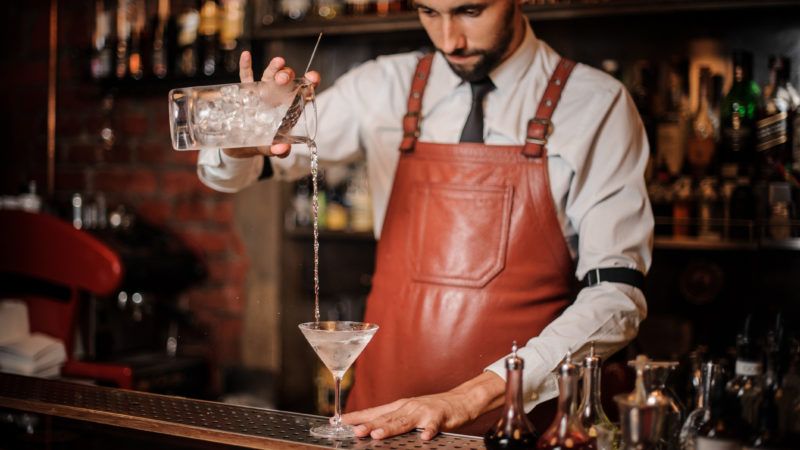Coronavirus Curfews Are Counterproductive and Un-American
Making businesses close early will not stop the spread of COVID-19.

As states reopen, many businesses are slowly starting to reemerge. So are misguided calls for coronavirus curfews.
The idea isn't new. As Reason's Matt Welch wrote in March, New Jersey Gov. Phil Murphy "strongly suggested" residents abide by an 8 p.m. to 5 a.m. curfew as COVID-19 began ramping up, though he never officially enforced it. The city of Boston followed suit in April, recommending a 9 p.m. to 6 a.m. curfew, but it seemed to be just that—a recommendation. Such declarations were essentially moot anyways, as widespread stay-at-home orders supplanted the purpose a curfew might serve. An exception would be Puerto Rico, which instituted, and rigorously enforced, a rather constraining curfew—7 p.m. to 5 a.m.
Yet the latest round of curfews aren't on individuals. They're on businesses, and they're not optional.
Consider the plan released Thursday by Oregon Gov. Kate Brown. Prior to reopening bars and restaurants, each county must first submit a separate proposal detailing how they will meet public health requirements. As a part of that package, establishments will have to mask their employees, space customers out by 6 feet, and close no later than 10 p.m.
Brown is certainly well-intentioned. But social distancing means restrictions on space, not time. Indeed, spreading out over time should make it easier to spread out over space, by allowing businesses to serve people later.
Montana Gov. Steve Bullock similarly permitted bars, restaurants, and casinos across the entire state to reopen starting May 4—if they close no later than 11:30 p.m. Bullock's mandate allots more time for revelry than Brown's does, but it might be more nonsensical, considering that Bullock's sparsely populated state has recorded only 458 cases of COVID-19 and is meeting the adequate testing thresholds.
Business curfews amount mostly to an attempt to "do something," even if that something flouts science and common sense. Brown and Bullock aren't alone in that. Gov. Gavin Newsom shuttered beaches in Orange County, California, for instance, after some photos seemed to show the area crawling with sun-drunk beachgoers. That decision contradicts the wealth of infectious disease experts who say that such outdoor spaces are adequately safe—and beneficial to our mental health—if social distancing guidelines are enforced.
The coronavirus response should be guided by science and reason, and it should give people the greatest flexibility possible to act in accordance with basic social distancing measures. These curfews do neither.
